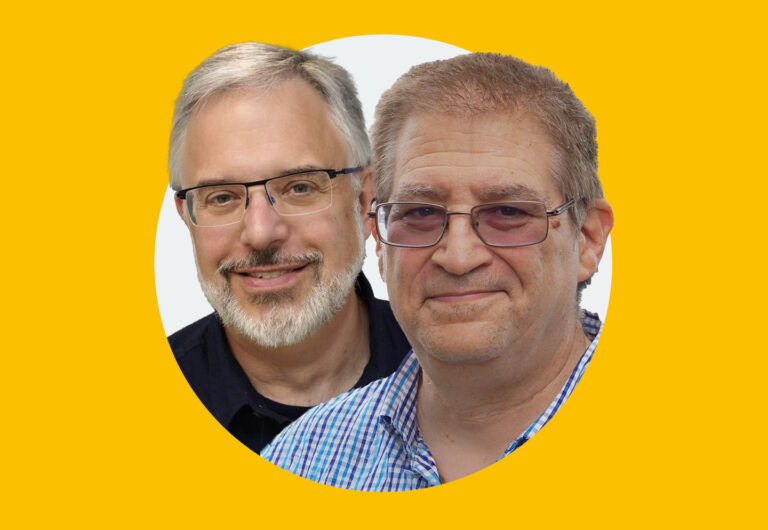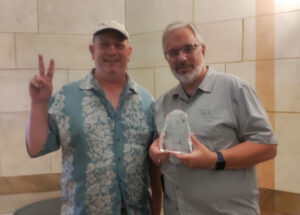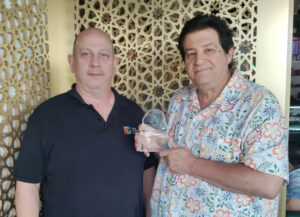Founders Dan York and Evan Leibovitch Entered as LPI Fellows

Created by Linux Professional Institute (LPI) in 2024, the Hall of Fellows formally recognizes individuals who have made long-term contributions through their open source advocacy and have shaped the organization and the broader free and open source communities. More than a title, Fellows are a lasting record of those who helped build infrastructure, programs, and communities with a high impact on the world.
Our first inductee was Jon “maddog” Hall, whose support for LPI dates back to its earliest phase. Long before the first exam launched, he provided strategic, financial, and organizational leadership. His induction set the tone: The LPI’s Hall of Fellows wouldn’t be merely symbolic but a structural record of those who made LPI and open source itself viable and valuable.
Following on that precedent, the 2025 Annual General Meeting (AGM) inducted two more individuals: Dan York and Evan Leibovitch. They are the co-founders of LPI, having independently invented the idea of a certification program and then having collaborated to set the fundamental parameters that have driven us for 25 years. The following sections describe each Fellow.
Dan York

G. Matthew Rice, Executive Director of Linux Professional Institute (LPI), handed the Hall of Fellows Award to Dan York, co-founder of LPI.
Dan York played a pivotal role in the initial conversations that led to LPI’s creation. As an active member of the Greater New Hampshire Linux User Group, he was among the first to publicly advocate for a vendor-neutral certification program rooted in community values. His outreach proved instrumental in securing support from Caldera Systems (then SCO Group), whose early investment helped launch LPI’s first exams.
Today, Dan serves as Chief of Staff at the Internet Society, working on global initiatives related to open standards, digital inclusion, and Internet resilience.
At this year’s AGM, Dan reflected on LPI’s early days, recalling how quickly ideas took shape when shared across mailing lists and in-person meetups:
“It started small, but it was never meant to stay small. The global scale came from community momentum.”
Evan Leibovitch

The other co-founder, Evan Leibovitch, also received the Hall of Fellows Award from G. Matthew Rice.
Evan Leibovitch was also present at LPI’s founding, providing both the organizational structure and the technical vision needed to establish it. He co-designed the original three-level certification framework and helped ensure that it remained accessible to learners everywhere. His home address served as LPI’s first official headquarters.
Evan’s recent projects include Maiple, an advocacy group for ethical and broadly available AI, and AgriDiscovery Foundation, a development organization promoting food security and social economic prosperity.
Speaking at the AGM, Evan emphasised that certification was always a means, never an end:
“This was about giving people real tools for real jobs. That meant building something open, globally recognised, and human.”
The LPI’s Hall of Fellows continues to grow, reflecting the values and history of LPI. With each new inductee, it continues to build a strong record of the people behind the progress. We look forward to celebrating more contributions in 2026.
